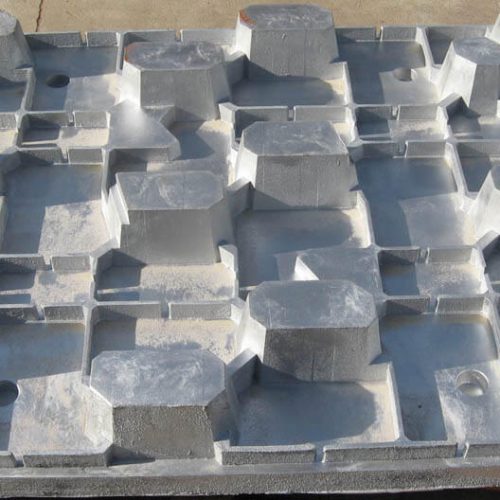TP Castings delivers precision-engineered vacuum moulding dies that reduce waste and improve sustainability for high-quality, eco-friendly castings.
Vacuum moulding dies are transforming modern foundry processes with their precision and efficiency. They deliver superior casting quality while supporting more sustainable production methods. From automotive to mining and engineering, industries are adopting this technology to achieve both performance and environmental goals.
What Vacuum Moulding Dies Are and How They Work
Vacuum moulding dies are advanced tools used in the vacuum moulding process, a casting technique that creates highly precise and complex parts. Unlike traditional sand casting, this method uses a vacuum to tightly seal and stabilise the sand mould without requiring binders. The vacuum ensures that the mould maintains its exact shape during the pouring and cooling stages, producing consistent and accurate castings.
This process allows for excellent dimensional accuracy, smoother surface finishes, and reduced defects, making it an ideal solution for industries where precision is critical. The enhanced reliability of vacuum moulding dies ensures reduced rework and higher production efficiency, positioning them as a valuable investment for quality-driven operations.
The Role of Vacuum Moulding in Sustainability
Sustainability has become a priority in manufacturing, and vacuum moulding dies are helping industries achieve these goals through cleaner and more efficient processes. By minimising material use, reducing energy consumption, and promoting reusability, this technology is setting a new standard for eco-friendly casting.
• Waste Reduction – One of the greatest advantages of vacuum moulding dies is their ability to reduce material waste. The precision of the moulding process means less scrap metal and fewer defective parts. This efficiency not only lowers operational costs but also minimises the environmental footprint associated with excess material usage and disposal.
• Energy Efficiency – Vacuum moulding is designed to streamline the casting process, reducing the energy required to produce each component. The method eliminates the need for chemical binders and complex preparation processes, enabling faster and cleaner production cycles. This energy efficiency translates into both cost savings and a more sustainable operation.
• Reusability – Another key sustainability benefit lies in the reusability of the materials involved. The sand used in vacuum moulding can be recycled multiple times without compromising quality. This reduces the need for constant raw material input, conserving natural resources while maintaining consistent casting performance.
Future of Vacuum Moulding in the Casting Industry
The future of vacuum moulding dies is bright, as industries continue to seek advanced, sustainable solutions. Innovations in die materials, design, and integration with automation are driving even greater efficiency and precision. Additionally, as environmental regulations become stricter, companies adopting vacuum moulding will be well-positioned to meet compliance requirements while maintaining their competitive edge. This evolution ensures that vacuum moulding will remain a preferred choice for businesses aiming to balance quality, efficiency, and sustainability.
Precision Meets Sustainability with TP Castings Expertise
With over 35 years of experience, TP Castings is a trusted family-run business specialising in vacuum moulding dies and precision casting solutions. We deliver sustainable, high-quality results that reduce waste, improve efficiency, and meet the unique needs of industries across Australia. Contact us to leverage our innovation and expertise to stay ahead in a competitive market.
Related Blog Article: Non-Ferrous Castings: The Ideal Choice for Vacuum Moulding Dies

